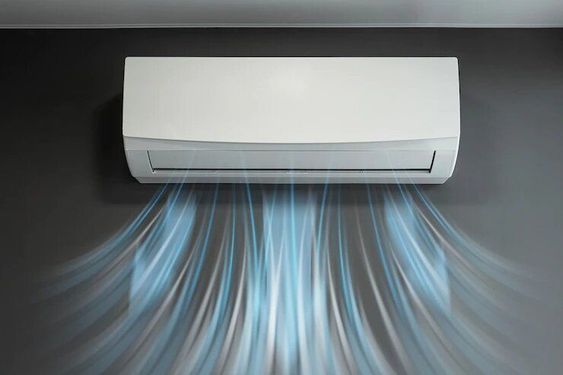
Regular maintenance of your air conditioning system is crucial for its performance, energy efficiency, and longevity. It prevents costly repairs, enhances indoor air quality, and ensures comfort throughout the year. Here are ten essential tips for homeowners.
1. Clean or Replace Air Filters Regularly
The air filter is a crucial component of your air conditioning (AC) system, trapping dust and other airborne particles to maintain clean air and protect the system’s internal components. A dirty or clogged filter can restrict airflow, causing the AC to work harder to cool your home, leading to higher energy consumption, wear and tear, and reduced efficiency. Additionally, a clogged filter can cause the evaporator coil to freeze, causing further issues and potential system failure. To avoid these issues, it’s essential to check your air filter at least once a month, especially during peak usage seasons. Most filters should be replaced every 1-3 months, depending on the type and home conditions. Homes with pets or allergies may require more frequent filter changes. Some modern HVAC systems have filter change indicators to alert users when it’s time to replace the filter. There are various types of air filters, including fiberglass, pleated, and high-efficiency particulate air (HEPA) filters. Each has its advantages and disadvantages, so it’s essential to choose the right one for your needs. Regular maintenance enhances AC system performance and efficiency and improves indoor air quality, benefiting occupants with respiratory issues or allergies.
2. Inspect and Clean the Coils
The evaporator and condenser coils in your AC system are crucial for cooling. The evaporator absorbs heat from the indoor air while the condenser releases it into the outside air. Over time, dirt, dust, and debris accumulate on these coils, reducing their ability to absorb and release heat effectively. Dirty coils increase energy consumption, utility bills, and wear and tear on the system. In extreme cases, they can cause the system to overheat and fail prematurely. To maintain the efficiency of your AC system, inspect and clean the coils regularly. Ideally, check annually and clean as needed. Clean the coils by removing surface dirt with a soft brush and using a commercial coil cleaner. Follow the manufacturer’s instructions to avoid damaging the coils. Additionally, ensure the fins on the coils are not bent or damaged, which can restrict airflow and reduce efficiency. Regular coil maintenance improves the system’s efficiency and performance and extends lifespan.
3. Check the Thermostat Settings
The thermostat is the central control center of your air conditioning (AC) system, responsible for regulating home temperature. It’s crucial to set it correctly to maintain a comfortable indoor environment and optimize energy efficiency. Upgrading to a programmable or smart thermostat can improve the system’s efficiency by allowing you to set temperature schedules based on your daily routines. This can lead to significant energy savings without compromising comfort. Smart thermostats can also offer features like remote control and learning capabilities, allowing the thermostat to learn your schedule and preferences. Regular checks and calibration are essential to ensure accurate temperature readings and proper operation. If discrepancies are noticed or the AC system seems to be running continuously, it may be time to check the thermostat. Sometimes, a simple recalibration can resolve the issue, but in some cases, a replacement may be necessary. Proper thermostat management not only improves comfort but also reduces energy bills by ensuring the AC system runs efficiently. Investing in a programmable or smart thermostat can lead to long-term savings in energy consumption and improved control over your home’s climate.
4. Clear Debris Around the Outdoor Unit
To maintain the efficiency of your AC system’s outdoor condenser unit, continue to inspect and clear away any debris surrounding it. Over time, leaves, grass, dirt, and other debris obstruct airflow, leading to overheating and reduced cooling efficiency. Regular maintenance, including a two-foot clearance and trimming overgrown plants or shrubs, is essential for optimal airflow and cooling efficiency. Regular maintenance improves the AC system’s efficiency and performance, prevents costly repairs, and extends lifespan. By keeping the outdoor unit free from obstructions, your AC system operates at peak efficiency, providing reliable cooling and reducing energy costs.
5. Schedule Professional Maintenance
A professional technician is crucial for inspecting and servicing your AC system at least once a year. They have the expertise to identify potential issues before they become huge problems, ensuring efficient and reliable operation. The technician performs a comprehensive inspection, including checking refrigerant levels, cleaning coils, tightening electrical connections, lubricating moving parts, and testing the system’s performance. They also check for signs of wear and tear and recommend necessary repairs or replacements. Regular professional maintenance extends the life of your AC system, provides comfort during the cooling season, reduces energy costs, and prevents unexpected breakdowns.
Regular AC maintenance is crucial for system efficiency and longevity. With these five tips, you can maintain your AC’s smooth operation, enhance energy efficiency, and avoid costly repairs. Regular maintenance enhances AC performance and provides a comfortable and healthy living environment for you and your family.
